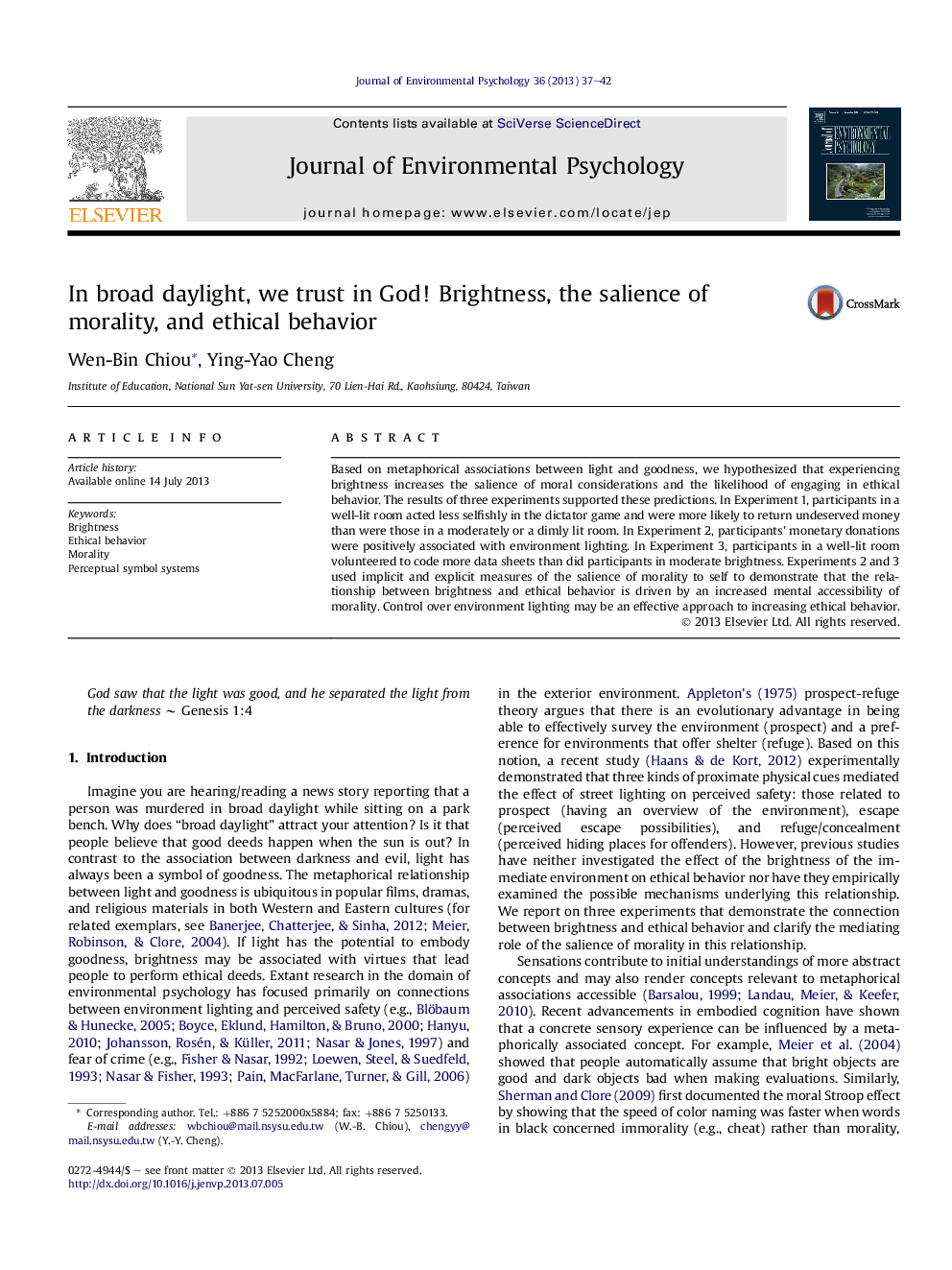| Article ID | Journal | Published Year | Pages | File Type |
|---|---|---|---|---|
| 7246536 | Journal of Environmental Psychology | 2013 | 6 Pages |
Abstract
Based on metaphorical associations between light and goodness, we hypothesized that experiencing brightness increases the salience of moral considerations and the likelihood of engaging in ethical behavior. The results of three experiments supported these predictions. In Experiment 1, participants in a well-lit room acted less selfishly in the dictator game and were more likely to return undeserved money than were those in a moderately or a dimly lit room. In Experiment 2, participants' monetary donations were positively associated with environment lighting. In Experiment 3, participants in a well-lit room volunteered to code more data sheets than did participants in moderate brightness. Experiments 2 and 3 used implicit and explicit measures of the salience of morality to self to demonstrate that the relationship between brightness and ethical behavior is driven by an increased mental accessibility of morality. Control over environment lighting may be an effective approach to increasing ethical behavior.
Keywords
Related Topics
Social Sciences and Humanities
Psychology
Applied Psychology
Authors
Wen-Bin Chiou, Ying-Yao Cheng,
